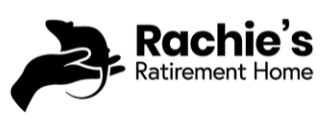RRH Pay What You Want/Can
A new model for Rachie’s Ratirement Home, following the best practice research from ‘Human Animal Support Services’.
Hello RRH Community!
We've received questions and concerns about the recent decision to waive adoption fees and transition to a Pay What You Want/Can (PWYW) scheme. To ensure transparency, a core value of our rescue, we'd like to take the time to clarify why we've adopted this approach (pun absolutely intended).
Our President and Founder, Grover, attended the Big Hairy People and Pet Summit in September 2023 and brought back a wealth of valuable information and current best practice methodology that prompted us to reevaluate our methods. The new methods Grover learned about at the summit are internationally evidence based and demonstrated a higher success rate than the conventional approaches we had inplace. The significant assumption under-pinning our previous approach followed the traditional shelter belief that if animals are given away for free, they won't be valued and may be neglected. This led to insist on adoption fees, assuming that it would protect against potential abuse or neglect and ensure high quality pet homes. However, studies, like the one conducted by Emily Weiss from the ASPCA comparing fee-based adoptions to free adoptions for cats, have shown this belief to be incorrect. Cats adopted without a fee were found to be equally valued by their owners, and by placing them directly into pet homes they received better care and attention, benefiting the cats, the shelter, the adopter, and the community as a whole.
A common concern is whether people who can't afford the adoption fee can adequately care for the animals, particularly considering potential veterinary costs. This concern has validilty and has absolutely guided our decisions in the past. However, at RRH we prioritise creating a non-judgmental, supportive rehoming centre for both incoming and outgoing animals. We recognise that every home environment is different, but that doesn't necessarily correlate with the quality of care an animal will receive. To ensure that all our rats are placed in knowledgeable homes capable of caring for them, we continue to fine tune our thorough screening process, including face-to-face interviews, honest conversations and supportive feedback. We provide education and assistance to all potential adopters, regardless of their experience level, and work with them to address any gaps in knowledge or husbandry practices. Our aim is to ensure that regardless of socio-economic status, our rats are placed in knowledgeable and caring homes. As a rescue we are also working to meet the communities need by preventing people who are struggling financially having to surrender their animals, we are doing this by operating a rat food community pantry, offering free/pay-what-you-like cage supplies, and are looking to expand our services in ways that meet the evolving needs of the community (particularly considering the cost of living crisis). It should also be noted that having the finances to pay for vet work unfortunately doesn’t correlate to people actively seeking that vet work for the animals in their care. There is far more that goes into quality husbandry than economic comfort and someone experiencing economic hardship is not an indicator that their animals won’t be loved and cared for.
We understand that home environments vary, but we emphasise the importance of love and care rather than equating it solely to external appearances. Our goal is to educate and assist both existing and potential community members, breaking down barriers to adoption and providing support rather than acting as gatekeepers.
To address concerns about indiscriminate adoption, we want to emphasise that while we prioritise education and working with potential adopters, we are not hesitant to decline adoptions if necessary. We turn away individuals exhibiting avoidant or discourteous behaviour, or those unwilling to meet our care standard. Additionally, we consider the suitability of our rats for each home environment, ensuring a good match for both the rat and the adopter. For instance, if we have a bitey rat who needs a quiet, calm home to thrive, but someone who has passed the application process has a busy home with a large family or multiple small children, this would not be a good environment for that rat to go home to and we would not adopt that specific rat to that specific home. Our rattie’s safety and comfort is our top priority, and if that means waiting for a little bit longer to find them that perfect furever home, we are not opposed to doing so.
Another concern people often have is that without adoption fees, what is stopping someone with less than honest intentions from adopting from us? The answer to that is at the end of the day if someone is looking for rats to abuse or neglect, there is a very, very low likelihood that they would be willing to go through our screening process where they HAVE to show us they meet a standard of care and talk the talk with us, as opposed to just visiting a produce store or feeder breeder and picking up a few rats for $5 each, no questions asked. We have never known of a case where somebody did this, and while it’s an understandable concern, we work hard to ensure that each rat is matched to their ideal home environment and we don’t believe that this situation is likely to go ahead unnoticed. If we were made aware of such a situation, we also have processes in place to support and respond to any concerns.
The fact of the matter is evidence shows that animals do better in pet homes than they do in rescue/shelter environments. No matter how dedicated our volunteers are (and we have the best vollies in the world if we do say so ourselves) they cannot replace the love and attention that a pet home can provide to their animals. The rescue environment is inherently stressful for animals and the less time they can spend with us before moving into a pet home the better. Instead of operating from a warehousing model where we provide long-term care for rats, we are prioritising getting them ready for adoption and finding them loving homes so no rat has to spend months on site with a revolving door of intros to other rats and humans (something even the chillest rats can find stressful).
We have already seen a huge shift in adoption rates with rats that had previously been on site for many months (up to and including over a year onsite) now in loving homes with people who can give them the individual care and love that they need.
In conclusion, the decision to waive adoption fees is not a devaluation of our rats. It is a decision informed by strong data and research that supports the notion that fees don't correlate with the quality of care. Our rescue serves as a temporary haven in full recognition that a home environment offers better care than a rescue facility. By removing adoption fees, we aim to eliminate unnecessary barriers and prioritise the well-being of our rats. If adopters face challenges, we provide ongoing support to keep their rats in homes and emphasise that if necessary, any rat adopted from us will always have a place to return to if needed.
We welcome questions, reflections and discussion on this change at RRH and we are more than happy to speak further on the HASS research that we have drawn on to inform this change in our operations.
Written by #VollieZoe, our Adoptions Coordinator on behalf Team RRH


